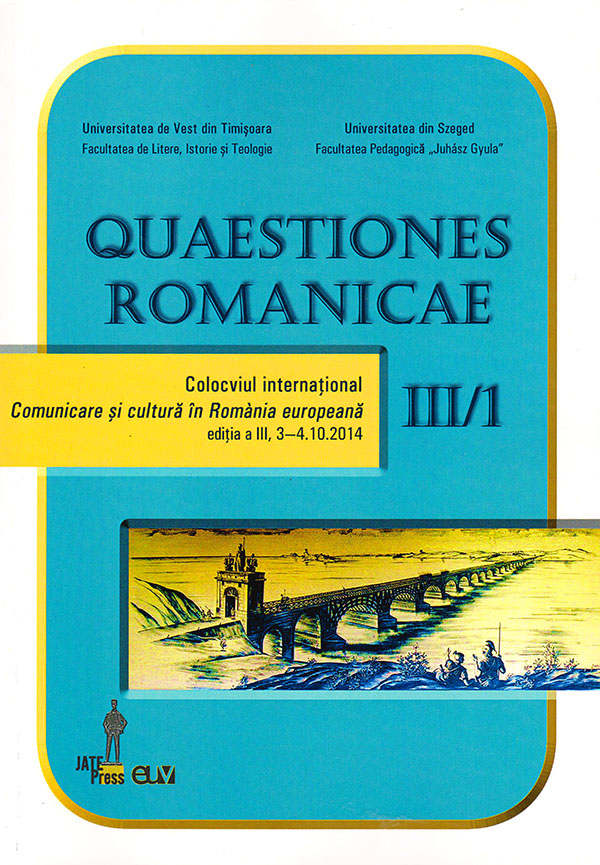Spațiul în romanele generației '60: ficțiune și proprietate
Abstract: (Space in the novels of the 60’ generation: fiction and property): The study points the concept of space in ’60 generation’s novels of Roumanian literature, followed on two essential coordinates: one of the fiction and one of the property, because almost all writers create their own spatial dimensions which they dominate by installing personal rules, as a reply to the hostile communist reality. The theoretical basis of the analysis will be consolidated on the fundamental assertions of Mihail Bahtin regarding the chronotope, at which we add references to the ones of Balzac and Zola. Concrete textual examples are targeting the works of George Bălăiță and Ștefan Bănulescu, two representative writers of the 60’ generation of Roumanian literature, followers of the idea of exploiting personal spatial dimensions with an artistic value through some narrative techniques which exceed the schematism and the cliché imposed to literature by the communist doctrine. In this way, we can perceive that the space is defined, at the borderline between real and fictional, as a concept varying with pluriperspective’s vocation.
Keywords: literary geography, fiction, ’60 generation, Mihail Bahtin, chronotope.
Rezumat: Studiul vizează conceptul de spațiu în romanele generației '60 a literaturii române, urmărit pe două coordonate esențiale: una a ficționalității și una a proprietății, întrucât mai toți scriitori își creează propriile dimensiuni spațiale pe care le stăpânesc, instaurând reguli personale, ca replică dată realității comuniste ostile. Baza teoretică a analizei se va consolida pe aserțiunile fundamentale ale lui Mihail Bahtin referitoare la cronotop, cărora li se adaugă referințe la cele ale lui Balzac și Zola. Exemplele textuale concrete vizează operele lui George Bălăiță și ale lui Ștefan Bănulescu, doi scriitori reprezentativi ai generației '60 din literatura română, adepți ai ideii de a valorifica dimensiuni spațiale personale cu valoare artistică prin intermediul unor tehnici narative care depășesc schematismul și clișeul impus literaturii de doctrina comunistă. În această manieră, se observă că spațiul se definește, la granița dintre real și ficțional, drept un concept variabil cu vocația pluriperspectivei.
Cuvinte-cheie: geografie literară, ficțiune, generația '60, Mihail Bahtin, cronotop.
